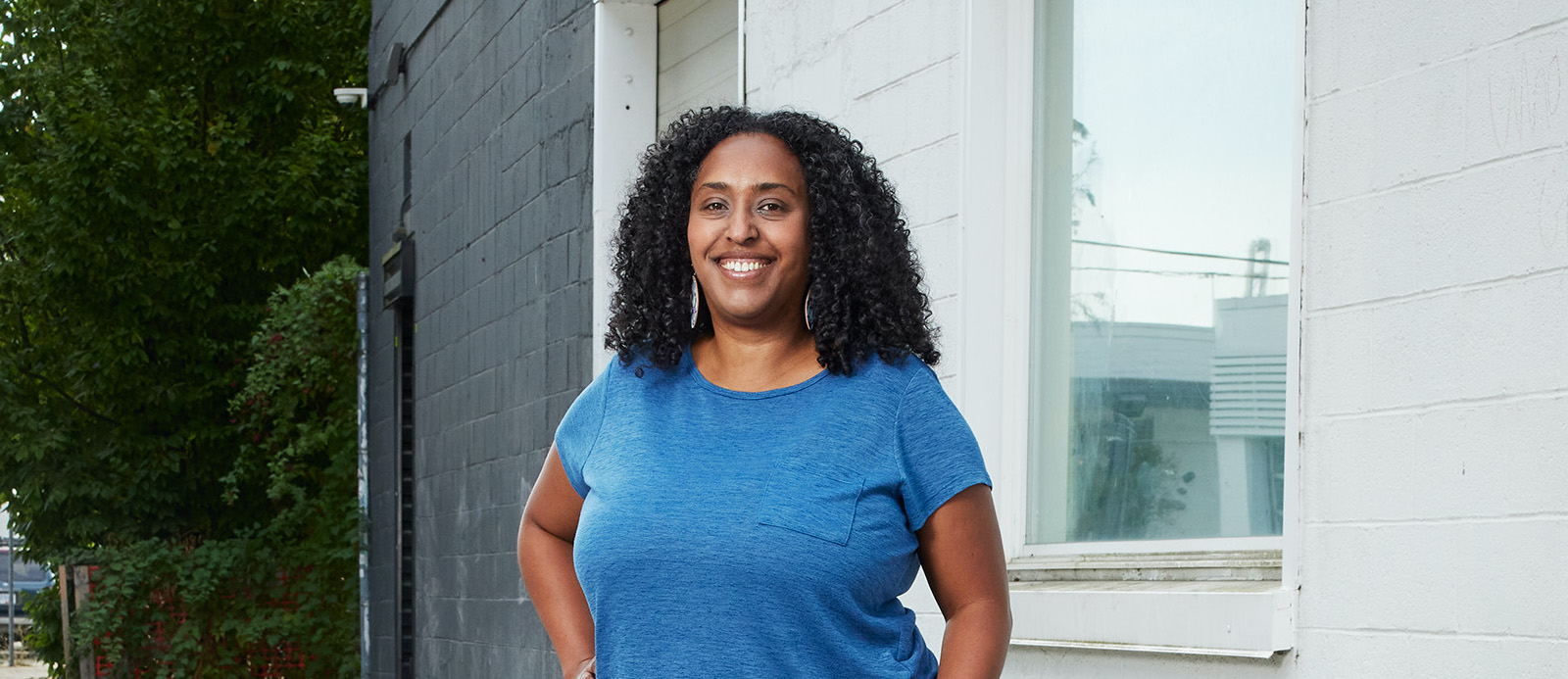
Change Can Happen. Profiles in community leadership: Mebrat Beyene
Central City Foundation is once again celebrating eight examples of extraordinary community leadership. We are highlighting the dedication and determination of those whose support for community-led solutions helped people in our inner city and beyond and have demonstrated that change can happen in our community. As part of this celebration, we have asked each of our profiled leaders to share with us their thoughts on leadership, community, and their relationship with Central City Foundation.
Mebrat Beyene, Executive Director, WISH Drop-In Centre Society
Mebrat has relentlessly challenged the community to address women’s safety in the DTES and has advocated for the need for a gender-based lens to the collaborative work being done through the Coordinated Community Response Network, as well as other collaborative initiatives.
Q: How does your organization help address the conditions faced by people in the inner city?
At WISH Drop-In Centre Society, our mission is to improve the health and safety of women and gender-diverse street-based sex. WISH is the largest sex work support organization in the country. Our model provides a variety of wrap-around supports for our participants who are facing overwhelming systemic and structural barriers. We start by addressing immediate health and safety needs through overnight drop-in, an 24/7 emergency shelter, an outreach van, meals, showers, and safety and harm-reduction supplies. As we build relationships with participants, they begin to access other WISH supports, services and programs that help them begin to achieve their personal goals. Those services include case management supports, supportive employment, Indigenous programming, and even music and art therapy.
Q: How would you describe some of the common lived experiences, systemic inequalities/inequities and other challenges faced by the people you work with?
Our participants face a number of systemic and structural barriers. Poverty is, overwhelmingly, the biggest challenge, along with a number of intersecting issues that include homelessness, mental health issues, trauma, gender-based and sexualized violence, lack of access to health care and mental health care, a poisoned drug supply and a rampant overdose epidemic. Racism, discrimination, and stigma also continue to plague this population. Street-based sex workers face an overwhelming set of intersecting barriers. WISH seeks to name and disrupt these structural issues while providing immediate access to health and safety supports.
Q: How would you describe the importance of community connections and a sense of acceptance and belonging for the people you work with?
Many of our participants experience profound isolation and stigma. Community and belonging are fundamental to the people we work with – as it would be for any of us. We provide a safe space with like-minded people who understand each other’s challenges and see each other as their whole person – without labels or shaming. It’s so important for everyone to be seen, heard and respected, including for their experiences. Connecting with others essentially provides respite.
Q: What are some examples that give you hope for a better future for the people with who you work?
Many of our participants feel like WISH helped them move forward in their journey and want to give back by helping others do the same. As a result, we employ a number of current and former street-based sex workers, many of whom are still accessing our services. We provide low-barrier participation, volunteer opportunities, supportive employment and, ultimately, the experience and opportunity to become a unionized staff member should that be their goal. Many participants express that this provides a valuable model for others who might be in the earlier stages of their journey. It’s a beautiful thing to see these transitions occur for people.
Q: How would you describe the value of developing relationships and collaboration between your organization and funders like Central City Foundation?
The societal issues we see are multi-faceted and extremely complex. No one organization has the capacity, resources or ability to address all of our participants’ needs. Collaborating in solidarity alongside trusted community partners and funders like Central City Foundation helps us find ways to provide more supports.
Q: What is it that you value most about being a community-partner of Central City Foundation?
Central City Foundation is actually part of the community. They are a real partner. They understand the realities and barriers we are supporting people through. They trust our expertise. Their proximity to community-led organizations such as WISH Drop-In Centre Society makes a huge difference in pursuing our advocacy, policy, and direct service goals.
 Previous story
Previous story
